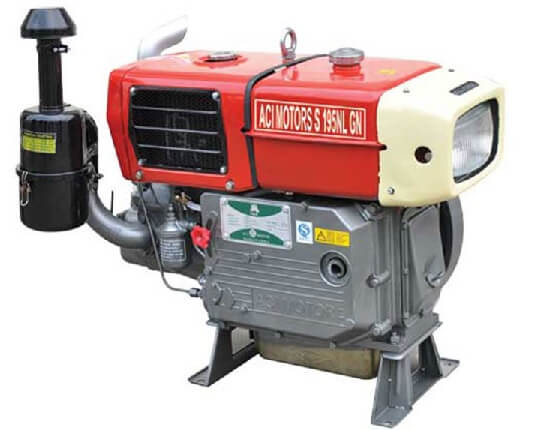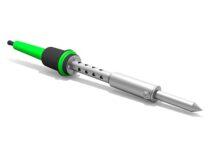Diesel engines are becoming more popular by the day, despite the hike in diesel prices all over the world. Why is this so? It is because you can use diesel engines for a wide variety of purposes. Asides from this, most experts consider diesel engines to be more efficient and present a lot more advantages than their gasoline counterparts.
There are different types of diesel engines with different capacities that can handle an array of tasks. One such diesel engine is the 195 diesel engine. How much does a 195 diesel engine cost in Nigeria? What are the different applications of a diesel engine? How does a diesel engine work? This post will answer these questions and several others so grab a seat and let’s go on this ride together.

195 Diesel Engine Prices in Nigeria
A diesel engine is also known as an internal combustion engine. It converts chemical energy (the energy gotten from diesel fuel) into mechanical energy. This engine was invented by Rudolf Diesel. Over the years, technology has revolutionized the design, functions, and applications of diesel engines.
Today, you find diesel engines used in generators, vehicles, agriculture, industries, and so on. Are you in the market for a new 195 diesel engine? The first thing you need to do is to figure out the cost of the machine. Knowing the cost of the engine helps you figure out if you can afford the purchase or not. It also allows you to weigh your options as you can view several products with different prices and specifications.
Running a market survey for prices is never easy, especially for diesel engines. This is why we decided to handle this bit on your behalf. After surveying the market, we have come up with a list of products and their current prices on the market. Check them out below:
- 195 Diesel Engine With 7.5kva Alternator:From N650,000
- Delmar 195 diesel engine with 7.5kva alternator with channel coupled : From N400,000
- DIESEL GENERATOR ENGINE 195: From N370,000
- Changhai S195 Diesel Engine: From N400,000
PRICES LAST UPDATED: JULY 15, 2023.
Kindly note that these prices are always fluctuating due to several factors like government policies, customs duty, company policies, haulage, and so on. NigerianPrice will keep watching the market to find out the latest prices of these engines and will update this post accordingly when we notice any. You may also experience slight price variations depending on where you purchase them from.
Types of Diesel Engines and Diesel Engines Work
As mentioned above, diesel engines convert chemical to mechanical energy. This mechanical energy can then be converted to different kinds of energy depending on the application of the engine. There are different ways to classify diesel engines. For this post, we will be classifying these engines based on the number of strokes they require to complete one combustion process.
On this basis, we can classify diesel engines into two broad categories namely:
- Four-stroke diesel engines.
- Two-stroke diesel engines.
Before we go ahead, let’s quickly look at each of these engines, what they mean, and their applications.
Four Stroke Engines
The engines in this category are mostly used in bikes and cars. As explained earlier, they require four strokes to complete a single combustion process. To operate successfully, the engine must complete a sequence of operations which include:
- Intake
- Compression
- Combustion
- Expansion
- Exhaust
Two Stroke Engines
These engines are also known as two-cycle engines. They require just two strokes to complete a single combustion cycle. These two strokes involve the following processes:
- First stroke: Intake of fuel and compression or air mixture.
- Second stroke: Compression, expansion, and removal of exhaust gases from the engine.
With these out of the way, we can discuss how diesel engines work. Regardless of the type of diesel engine or strokes it takes to complete a combustion cycle, diesel engines work in the same way. The steps below show how diesel engines work:
Step 1: Suction of air from the immediate environment followed by compression of the air.
Step 2: Injection of fuel into the engine at very high temperatures and pressures.
Step 3: Combustion of the fuel resulting from the high temperature and pressure within the engine. This process results in the movement of the piston.
Step 4: Exhaust. This involves the removal of exhaust gases produced by the combustion process from the engine.
Step 5: The cycle repeats over and over.
Benefits of Choosing Diesel Engines
For several years, people preferred to work with gasoline engines. This is because they didn’t have an idea of what diesel engines brought to the table. In more recent times, people are making the switch to diesel engines because of the immense benefits that abound. This section sheds some light on the benefits of choosing diesel engines over gasoline engines.
- Diesel engines are more efficient than gasoline engines.
- They are far more durable because they have fewer moving parts. This means that there is less wear and tear to worry about when it comes to diesel engines.
- Diesel engines don’t require as much maintenance as gasoline engines. Because of this, you will be saving a lot of cash that would have been spent on periodic maintenance.
- Diesel engines generate more torque and horsepower than their gasoline counterparts.
- They don’t come with spark plugs and distributor caps. This means that you wouldn’t have to spend money to replace these parts for as long as you will use the engine.
While diesel engines present so many exciting benefits, there are also a few challenges. Check out some of them below:
- Diesel engines are far heavier than their gasoline counterparts. This means that mobility is a big challenge, hence, why most diesel engines are stationary.
- They are not too efficient with high-speed performance.
- Diesel is getting more costly by the day.
Applications of Diesel Engines
Diesel engines are very versatile so they have been used for several purposes. To conclude this post, we will share some applications of diesel engines:
- Buses and trucks
- Cargo and cruise ships
- Construction equipment
- Diesel generators
- Farming equipment
- Locomotives





